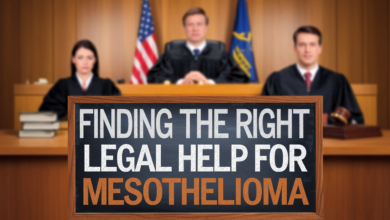Is it Better to Quit or Be Fired? Making the Right Decision for Your Career

When you’re facing tough times at work, one of the biggest questions that can come to mind is, “Is it better to quit or be fired?” This is a dilemma that many workers experience, especially when performance expectations are unclear or when your job feels unbearable. The choice between resigning on your own terms or waiting to be let go can impact your career in ways you might not have thought of. Understanding the professionals and cons of every choice can assist you make a decision that is on your fine hobby.
While quitting might feel like you’re taking control of your career, there are a lot of factors to consider. First, quitting means you leave the job on your own terms, which can allow you to keep your reputation intact. However, there might be financial consequences, especially if you’re not already prepared with another job lined up. On the other hand, being fired often comes with emotional consequences and might make it harder to explain your situation to future employers. But, being terminated can sometimes open up opportunities for severance or unemployment benefits. The right decision for you will depend on your career stage, financial situation, and personal goals. It’s important to think about these carefully before making a move.
Is It Better to Quit or Be Fired? What’s the Right Choice for Your Career?
Deciding whether to quit or wait to be fired is a big decision that can impact your career. If you’re not happy at work and feel like you’re not meeting expectations, you might feel like quitting is your best option. Quitting gives you control over the situation, and you can leave on your own terms. But, if you’re thinking about future job opportunities, getting fired may make things a little trickier. Being fired could leave a mark on your resume, but it could also open the door to severance pay and benefits. It’s important to think carefully about your career goals and what’s best for your well-being before making the final choice.
Weighing the Risks and Benefits of Quitting vs. Getting Fired
When you consider whether it’s better to quit or be fired, think about both the risks and rewards. Quitting might feel empowering, but you lose control over things like severance pay and unemployment benefits. On the other hand, being fired could hurt your self-esteem and job prospects. However, it can also be a way to depart with a few financial support. It’s important to look at the bigger picture. Ask yourself if you can find another job quickly, whether your mental health is being affected, and what you really need in this stage of your career. Weighing the pros and cons will help you make the right decision for your situation.
How Quitting Your Job Affects Your Reputation vs. Getting Fired
Your reputation is one of the most important things in your career. When you quit a job, you have the chance to leave on good terms, which might help you get a positive reference in the future. If you get fired, however, it can be harder to explain why, especially in interviews. Employers may wonder if you were let go because of performance issues or bad behavior. Quitting can help protect your reputation, but it might also raise questions about why you didn’t stick it out. If you’re worried about your reputation, think about how you can exit gracefully and maintain a positive image for your next job search.
Is It Better to Quit or Be Fired? The Impact on Your Mental Health
The stress of a difficult job can affect your mental health. If your job is causing too much stress or anxiety, quitting might be the healthier choice. Staying in a job that makes you unhappy can hurt your mental well-being. On the other hand, waiting to be fired might cause more anxiety because you don’t know when the end is coming. It can also feel like a blow to your confidence. If your mental health is at stake, think about your options carefully. Quitting may give you peace of mind, while being fired may leave you feeling upset. Either way, it’s important to take care of yourself during this time.
Understanding Your Rights: Should You Quit or Wait to Be Fired?
Before deciding whether to stop or be fired, it’s essential to understand your rights at paintings. Check your employee contract to see if there are any rules about resignation or termination. Some companies offer severance pay if they let you go, but not all do. If you’re in an “at-will” state, your employer can fire you for almost any reason, but they can’t discriminate against you. Make certain you realize what your rights are whilst making this decision. Knowing your rights can help you decide whether it’s better to quit or wait for termination without getting into any legal trouble.
The Emotional Toll of Quitting vs. Being Fired: Which Is Easier to Handle?
Quitting or being fired both come with emotional challenges. If you quit, you might feel relief, knowing you made the decision yourself. However, quitting can also bring feelings of doubt or failure, especially if you feel you didn’t meet expectations. Getting fired, on the other hand, can hurt your pride and self-esteem, especially if it happens unexpectedly. It can leave you feeling upset, angry, or even embarrassed. If you’re trying to figure out which is easier to handle emotionally, think about which scenario will leave you feeling better in the long term. Your emotional health matters, so choose the path that helps you move forward with confidence.
Is It Better to Quit or Be Fired? How to Protect Your Financial Future
Whether you quit or get fired, protecting your financial future is a top priority. If you quit your job without another one lined up, you may face a financial gap before your next paycheck arrives. However, if you’re fired, you may be eligible for unemployment benefits depending on the circumstances. This can provide a financial cushion while you search for a new job. Make sure you have a plan in place before making a decision. This might include saving some money, looking for a new job, or preparing for any benefits you might get if you’re fired. Thinking ahead can help protect your financial well-being during this time of change.
The Long-Term Effects of Quitting vs. Being Fired: What You Need to Know
Both quitting and being fired have long-term effects on your career. Quitting can give you a fresh start, but it can also make it harder to explain your job history in interviews. Being fired might make it harder to get hired, but it could also help you learn from the experience and grow stronger. Think about how each choice will affect your career in the future. Will quitting give you the liberty to discover a higher activity, or will it make it harder to provide an explanation for your preference to new employers? Or, will being fired make you appear less attractive to potential employers? Consider both your short-term and long-term career goals before making a decision.
Resignation or Termination: How It Affects Your Eligibility for Future Jobs
When you’re deciding whether it’s better to quit or be fired, it’s important to think about how each option will affect your future job opportunities. Some employers will ask if you’ve been fired or quit from previous jobs. Being fired can sometimes make it harder to get hired, but it’s not always a deal-breaker. If you resign, you have a better chance of leaving on good terms, which can lead to more positive job references. However, quitting would possibly leave you with out the monetary aid you may want inside the meantime. When considering future job opportunities, think about how each choice might impact your reputation and your ability to find a new job.
Is It Better to Quit or Be Fired? How to Prepare for Both Scenarios
It’s always right to be organized for some thing may appear. Whether you’re planning to quit or get fired, having a plan can help you feel more confident. If you’re quitting, make sure you have another job lined up or enough savings to cover your expenses. If you observed you is probably fired, it’s crucial to get your resume updated and begin searching out new possibilities. It can also help to practice explaining your situation to potential employers in a way that highlights what you’ve learned from the experience. Being prepared for either option will help reduce the stress and uncertainty that comes with job changes.
Conclusion
In the end, deciding whether it’s better to quit or be fired depends on your personal circumstances. If your job is taking a toll on your mental health or if you have another opportunity lined up, quitting might be the best choice. However, if you’re hoping for severance pay or unemployment benefits, being fired may provide some financial help. Each option comes with its own set of pros and cons, and it’s essential to weigh these carefully before making a decision.
Ultimately, what is maximum crucial is your well-being and your future. No matter which path you take, remember that your career isn’t defined by one job or one decision. Whether you quit or get fired, you have the power to move forward and find a job that better suits your goals and values. Stay positive and take steps to protect your mental, emotional, and financial health along the way.
FAQs
Q: Should I quit if I feel I’m going to be fired?
A: It depends on your situation. If quitting gives you control and helps protect your reputation, it might be the better choice. But, if you’re concerned about severance pay, you might prefer to stay and wait.
Q: Can I still get a reference if I resign?
A: Yes, quitting on good terms can help you maintain positive relationships, which can lead to a strong reference for future jobs.
Q: How does being fired affect my resume?
A: Being fired can be a red flag for some employers, but if you explain it carefully in interviews, it doesn’t have to hurt your chances.
Q: Will quitting affect my eligibility for unemployment?
A: Generally, quitting a job voluntarily makes you ineligible for unemployment benefits, unless you have a valid reason like unsafe work conditions.
Q: How can I prepare if I think I’m about to be fired?
A: Update your resume, start networking, and search for new job possibilities before the scenario escalates to give yourself a head begin.



